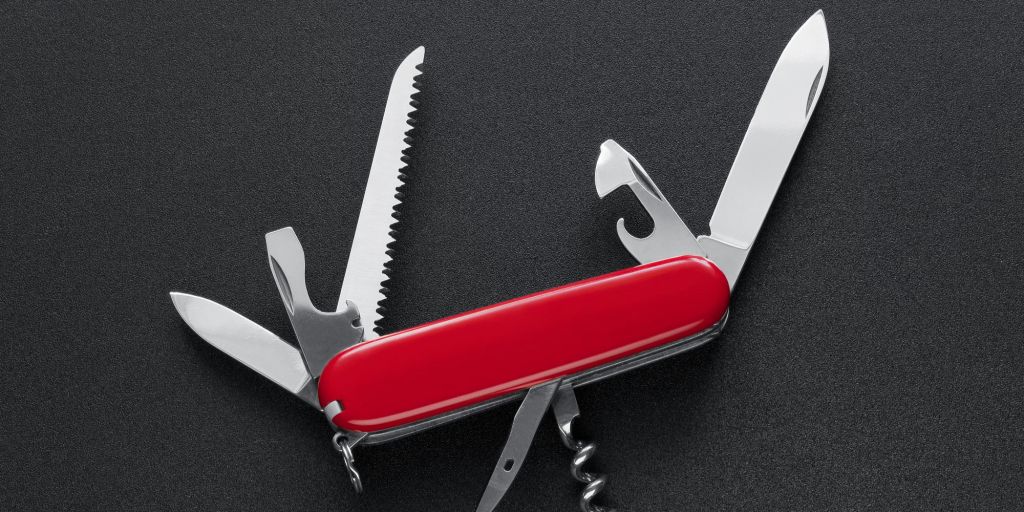There have been many pioneering inventions in Switzerland. They continue to enrich Swiss technology today.
The basics in brief
- Switzerland is the birthplace of the World Wide Web.
- Swiss researchers have made many innovations in the medical field.
Swiss technology (invention) is known and loved all over the world today: the Swiss Army Knife. It was developed in the 1880’s by the Swiss Army, who were looking for a practical all-purpose tool for easy portability. The original models consisted of a blade and a screwdriver before more and more functions were added.
Another world-famous Swiss invention is instant coffee. It saves countless people on mornings when a filter coffee machine doesn’t exist.
It was developed by the Swiss company Nestle and called it Nescafé. Therefore, this classification has become synonymous with instant coffee. Nescafe is now one of the most valuable brands in Switzerland.
There is no internet without Switzerland
Although Tim Berners-Lee, the father of the World Wide Web, is English, the Internet was born in Switzerland. Because Berners-Lee was working as a scientist at CERN (Conseil européen pour la Recherche Nucléaire) in Geneva when he put the world’s first website online on December 20, 1990.
The ulterior motive was to establish networks between the various CERN departments in Switzerland and France. The so-called World Wide Web (WWW) formed the basis for the later Internet. Similarly, protocols such as HTML, HTTP, and URL, which are still in use today.
Swiss tech in the field of technology and the Internet continued to thrive. The famous Helvetica font also comes from Switzerland.
Swiss Technology: Inventions in Medicine
The Swiss spirit of invention has borne rich fruits, especially in the field of medicine. Two of the most important inventions were the first artificial hip joint and the first implantable pacemaker.
Arterial clamps were also used for the first time in Switzerland. The latest innovations from the Alpine country include heart valve implant prostheses, micro-robots in surgery and Swiss technology.
Swiss technology for everyday life
Today, anyone who zips up a jacket or boots with Velcro thanks the Swiss. It was the lawyer Martin Winterhalter from St. Gallen who received a US patent for the fastener from 1851. He improved the idea and in 1924 the modern zipper was born.
Just a few years later, engineer Georges de Mistral came up with the idea of a Velcro fastener, inspired by the bumps of vegetables. He named his invention Velcro after the French terms velveteen (velvet) and crochet (hook). Velcro had a huge breakthrough when NASA used it for the Apollo space capsules in 1969.
If you lock your front door, chances are you’re also using a Swiss invention: the kappa key. It was developed by Fritz Schöre in 1934. The special thing about it is that the key can also be inserted into the lock the wrong way. A great success for Kaba, which has grown from a medium-sized company into a global listed company.
Swiss inventions in the kitchen
In addition to culinary classics such as fondue and raclette, Switzerland also manages to impress with practical inventions in the kitchen. Cellophane is perhaps the most famous Swiss invention in this field, which chemist Jacques E. Brandenberger worked on for twelve years.
With the world’s first water-repellent packaging material, food can finally be hygienically packaged and transported. Because the Swiss hate waste, the vegetable peeler was also invented here.
The original version by Alfred Nieuwczerzal from 1947 was patented under the name Rex. Today there are many versions.
opinion poll
Did you know the Swiss inventions mentioned in the text?

“Certified tv guru. Reader. Professional writer. Avid introvert. Extreme pop culture buff.”







More Stories
Pitch: €56m for energy startup Reverion
Plastoplan: Plastics for Energy Transition
Canon Launches Arizona 1300 Series with FLXflow Technology